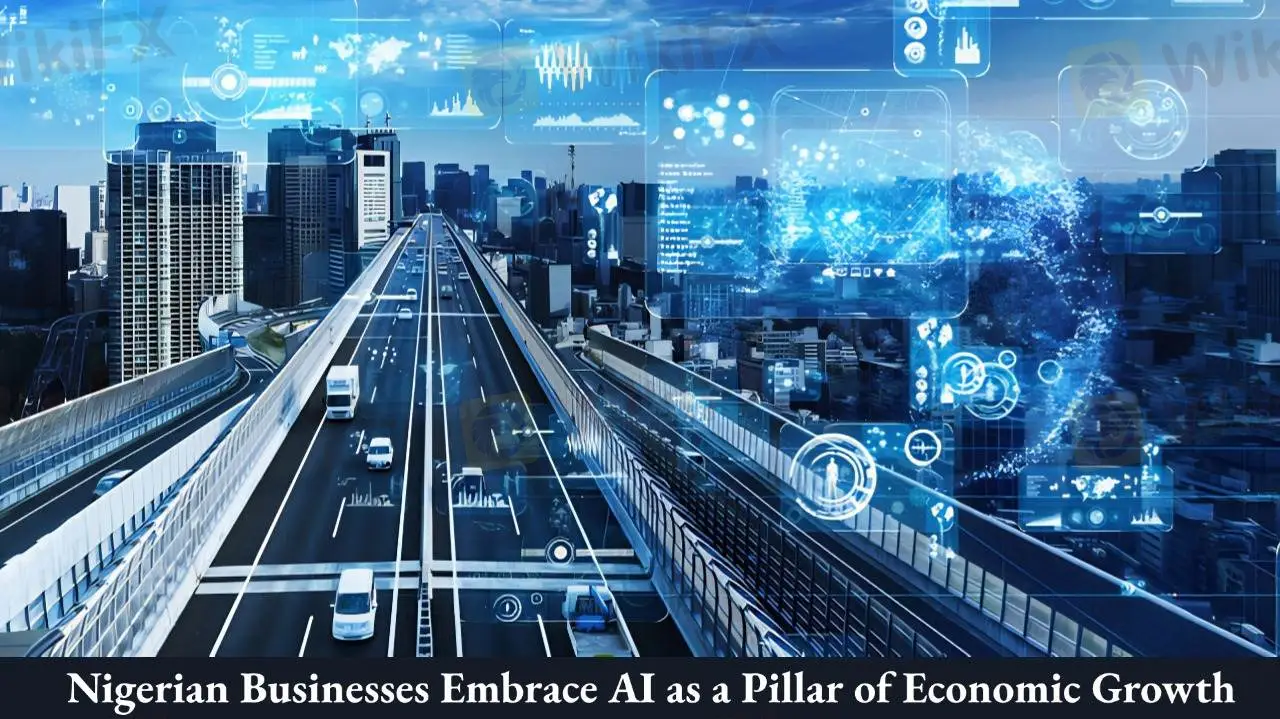Nigerian Businesses Embrace AI as a Pillar of Economic Growth
Abstract:Nigerian companies are actively embracing artificial intelligence (AI) as a strategic tool for transformation, aiming to position it as a core pillar of the country’s future economic strength.

In the face of persistent global economic headwinds—including inflation, currency volatility, and high interest rates—Nigerian business leaders are responding not with caution, but with innovation and confidence. A recent global CEO survey highlights this shift in mindset: 61% of Nigerian CEOs anticipate economic growth in the next 12 months, slightly above the global average. Even more striking is their collective readiness to overhaul traditional business strategies and embrace emerging technologies, with artificial intelligence standing out as the key focus.
Rather than being intimidated by economic uncertainty, many Nigerian firms are doubling down on internal reforms and long-term planning. Over 80% of surveyed CEOs in the country expect to incorporate AI into their operations within three years—surpassing expectations in many developed economies. For these companies, AI is not merely a technical upgrade; it's a game-changer that can reshape entire industries. From predictive analytics in logistics to automated financial reporting and intelligent customer service systems, AI offers the promise of both improved efficiency and new revenue streams.
This technological shift is also accompanied by a broader strategic realignment. Many Nigerian businesses have entered new sectors and adopted more flexible pricing models to meet evolving consumer expectations. More than half of the CEOs surveyed report having expanded their customer base in recent years. This adaptability reflects a maturing corporate environment where innovation is being treated as a necessity rather than a luxury.
The anticipated impact of AI on Nigeria‘s economy is multifaceted. On one hand, it can help mitigate operational challenges—such as labor shortages and rising costs—by automating repetitive tasks and enabling smarter decision-making. On the other hand, AI can be leveraged to create entirely new value propositions, particularly in finance, healthcare, and agriculture—sectors critical to Nigeria’s long-term development. For instance, AI-driven tools can help banks identify fraud patterns faster, aid hospitals in diagnostic processes, or help farmers optimize crop yields through data modeling.
However, the road ahead is not without challenges. One of the most significant is the lack of skilled labor. While AI adoption is high on the agenda, many companies face difficulty sourcing professionals with the technical expertise to manage and scale these systems. Without substantial investment in talent development—whether through partnerships with universities, upskilling programs, or global collaborations—the promise of AI could stall before reaching its potential.
Another hurdle is cost. Developing and integrating AI tools can be expensive, and the return on investment may not be immediate. For companies operating on tight margins, this can pose a dilemma: how to invest in transformation while maintaining financial stability. Furthermore, successful AI adoption often requires complementary investments in infrastructure, such as cloud computing capabilities and cybersecurity frameworks.
From an investor‘s standpoint, Nigeria’s AI momentum offers fresh opportunities—but also demands caution. While the enthusiasm from CEOs is encouraging, investors must evaluate each company‘s capacity for sustainable innovation. It’s not enough for a business to declare its digital ambitions; it must also demonstrate the governance, adaptability, and operational discipline needed to execute them effectively.
Meanwhile, Nigerian businesses are showing increased awareness of environmental and social responsibility. A significant number of CEOs reported making climate-friendly investments in the past five years. While only a small percentage currently see climate change as a major risk to their operations, this awareness is growing. Integrating AI and sustainable practices could become a powerful dual strategy, helping companies improve both their bottom line and their social impact.
In conclusion, Nigeria is at a pivotal moment where optimism, innovation, and necessity are converging. AI is not a distant vision but a present-day priority, seen as essential for long-term competitiveness. For businesses, this means balancing bold transformation with careful execution. For investors, it presents a new frontier filled with both opportunity and complexity. And for the broader economy, it signals a shift toward a more technologically resilient future—one built not just on resources or consumption, but on intelligence, adaptability, and long-term strategic thinking.

Read more

Warren Buffett’s 5 Golden Rules that Every Trader Must Know
Warren Buffett is one of the most successful investors in the world. He built his wealth through smart, patient decisions and a strong understanding of how markets work. Today, his advice is followed by investors and traders everywhere. Here are five simple but powerful lessons from Buffett that can help anyone grow their money wisely.

Futu Securities Launches Crypto Deposit Service for Investors
Futu Securities launches a crypto deposit service for Bitcoin, Ethereum, and Tether on its trading platform, bridging traditional and decentralized finance.

ASIC Releases New Regulatory Guidance to Support Buy Now, Pay Later Industry Reforms
The Australian Securities and Investments Commission (ASIC) has published a new regulatory guide aimed at assisting buy now, pay later (BNPL) providers in navigating their obligations ahead of new laws coming into effect on June 10, 2025. The guidance, titled Regulatory Guide 281: Low-cost credit contracts, provides critical information to help low-cost credit contract providers comply with their key responsibilities, including new, modified responsible lending obligations.

XM Marks 15 Years in Trading with New Product Launches and Events
XM marks 15 years in trading with new product launches, AI tools, and global events, enhancing the trading experience for clients worldwide.
WikiFX Broker
Latest News
MultiBank, MAG, and Mavryk Partner for $3B RWA Tokenization
Westpac Fined NZ$3.25 Million Over Misleading Fee Practices Affecting 24,000+ Customers
StoneX Brings FOREX.com to Singapore
Italy’s Consob Blocks Four Crypto Platforms for Unauthorized Services
ATFX Reaffirms Commitment to Traders and Community Growth
Regulators Uncover $1.2 Billion Fraud Linked to IM Academy
Beware of Rising Online Scams in the Philippines: A Growing Threat
Promax Trading Exposed with Account Disabling and Scam Allegations
Who Are the Cybercriminals Behind the Darcula Phishing Network?
USD Index Continues to Weaken: Is the Market Losing Confidence?
Rate Calc
